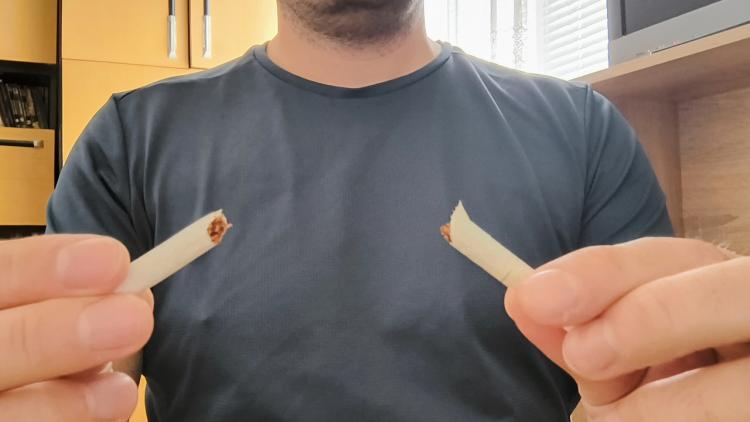
One of the most pointless things a person can do is smoke cigarettes—and I say this from personal experience. Quitting smoking wasn’t easy for me at all, and with this post, I hope to give at least a little encouragement and share some useful advice with those who want to break this harmful habit.
The first and most important thing when it comes to quitting cigarettes—or tobacco and nicotine in general—is to truly want it. If you don’t really want to quit, you never will. There’s a saying that fits perfectly here: Those who want something find a way. Those who don’t, find excuses.
And one of the most common excuses—especially among women—is the fear of gaining weight after quitting. But gaining weight has little to do with quitting smoking. In fact, some people actually lose weight when they stop smoking.
Let me start by sharing my unsuccessful attempts at quitting this poison. The first time, I decided to quit together with a friend. And honestly, quitting with a friend is a great idea—you can motivate each other along the way. I managed to stay smoke-free for around 6–7 months. I don’t even know why I started again—probably a moment of weakness, and under the influence of alcohol, I picked up a cigarette again.
The problem with starting to smoke again is that the craving for nicotine gets stronger, and you often end up smoking heavier cigarettes and in larger quantities. Soon after that, I tried to cut back to one pack per day and switch to lighter cigarettes. But in the end, I was still smoking between one and two packs of blue Victory cigarettes. Then I switched to the light version, then to cigarettes with activated charcoal filters, and so on.
Later, I had another short attempt—this time I managed to stay off cigarettes for about 2–3 months, but it was even harder than the first time. Eventually, I relapsed again and smoked like a chimney for a while. What I learned from all this is that switching to lighter cigarettes or smoking fewer of them won’t help you quit!
Nor will nicotine substitutes—because you’re still feeding your body the drug.
The only way to quit smoking is to stop abruptly and completely.
Not “tomorrow,” not “on Monday,” not “after you finish this pack.”
Now. Right now.
That’s exactly what I did. I still had about a pack and a half left in the drawer, and they stayed there for a long time after I quit—but I never touched them again.
Tips for Staying Smoke-Free:
In the beginning, avoid smokers and places where people smoke.
The smell of cigarette smoke can trigger a very strong craving. You’ll need sheer willpower and stubbornness not to give in, so it’s best to steer clear of smoking environments—especially during the first few weeks.
When you feel a strong urge to smoke, go for a short walk or distract yourself with an activity until the craving passes. Eating a slice of apple or drinking water can also help.
If you’re worried about gaining weight, the key is to avoid mindlessly snacking every time you feel a nicotine craving. Replacing one addiction with another—like turning to sweets—is not a healthy solution.
Some of the Benefits After Quitting Smoking:
Your sense of taste and smell will improve significantly.
Everything will taste better—so watch your calorie intake!
Over time, you’ll be less and less out of breath during physical activity like climbing stairs or hiking.
Your skin will look much better. Female smokers, in particular, tend to show signs of aging more noticeably after their 40s. Your skin will definitely thank you.
Your teeth will become noticeably whiter, and with the right care, they can look truly bright and healthy.
There are many more benefits, of course, but the most important one is this:
You’ll have freed yourself from a completely useless and harmful habit.
And Finally...
Let me leave you with this:
Quitting smoking starts NOW.
Not on Monday, not on New Year’s Day, not after some made-up “perfect moment.”
If you want to succeed—start now. Immediately.
Add new comment